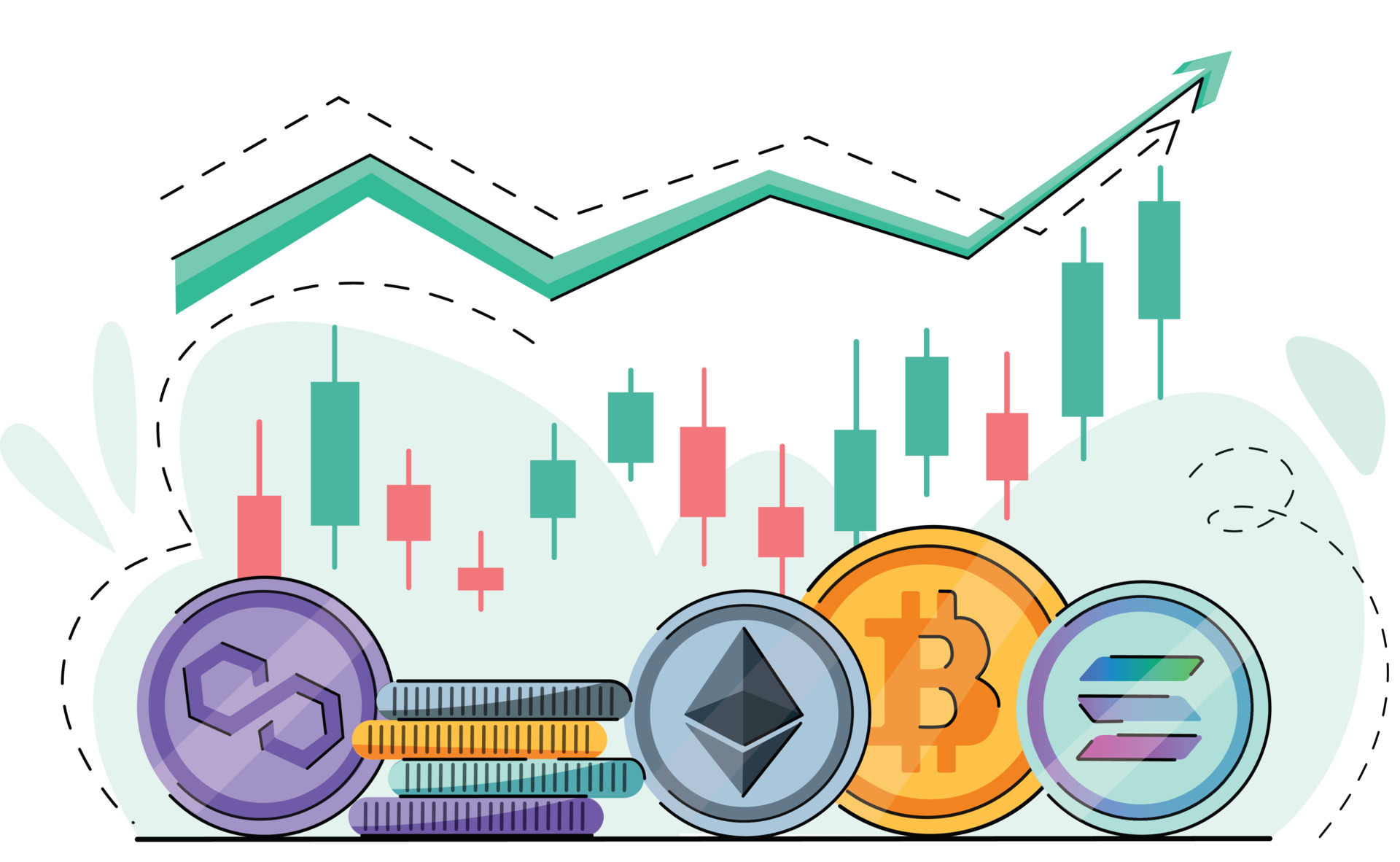

What is Cryptocurrency?
(Don’t worry, it’s never been as confusing as it sounds!)
If you’re reading this and thinking, “What on earth is cryptocurrency?” don’t worry, you’re not alone. There’s a whole world out there of cryptos, wallets, and blockchains that can seem as puzzling as trying to solve a Rubik’s Cube blindfolded. But here’s the good news: you don’t need to be an expert to understand the basics. Whether you’re just curious or eager to dip your toes in the world of digital currency, we’ll break it all down for you in a way that makes sense. So, take a deep breath—let’s explore cryptocurrency together.
The Basics: What is Cryptocurrency?
In simple terms, cryptocurrency is a digital currency that exists only online. Unlike traditional currencies such as pounds or dollars, cryptocurrencies don’t rely on a central authority, like a government or bank, to regulate them. Instead, they are powered by blockchain technology, which is a decentralized system where transactions are verified by a network of computers. This structure makes cryptocurrencies transparent and resistant to manipulation.
Think of cryptocurrency like digital money—just without any physical form. You can use it to buy things, trade it for other currencies, or even hold it as an investment, much like stocks or bonds.
How Does Cryptocurrency Work?
At the heart of most cryptocurrencies is blockchain technology, which is a digital ledger that records all transactions. A blockchain is essentially a chain of records (blocks) that are stored across a network of computers, ensuring no one person or entity controls the data. Two main consensus mechanisms validate these transactions:
- Proof of Work (PoW): Miners compete to solve complex puzzles using computational power. The first to solve the puzzle validates the transaction and earns rewards, ensuring security but consuming significant energy.
- Proof of Stake (PoS): Validators are chosen based on the amount of cryptocurrency they stake as collateral. This process requires less energy and allows for faster transaction validation while still maintaining blockchain security.
Both methods ensure trust and transparency in cryptocurrency networks.
Popular Cryptocurrencies
Bitcoin (BTC): The first cryptocurrency, often referred to as “digital gold.” Bitcoin is the most well-known and has the highest value in terms of market capitalization.
Ethereum (ETH): Ethereum introduced the concept of smart contracts, which allow decentralized applications (DApps) to run on its blockchain. It’s not just a currency, it’s a platform for building other decentralized services.
Ripple (XRP): Aimed at revolutionizing cross-border payments, XRP enables quick and low-cost international money transfers.
Why Should You Consider Cryptocurrency?
You might be asking, “What’s the point of using crypto?” Well, there are several reasons why people are turning to it:
- Potential for High Returns: As with any investment, cryptocurrency offers the chance for high rewards, particularly for early investors. In fact, early adopters of Bitcoin saw massive gains as the price skyrocketed.
- Decentralization: Without the need for banks or middlemen, cryptocurrencies offer a way for people to have full control over their assets, bypassing traditional financial systems.
- Hedge Against Inflation: Cryptos like Bitcoin have limited supply, unlike fiat money which can be printed by governments. This makes some see it as a potential hedge against inflation.
- Global Accessibility: Cryptocurrencies allow people to send and receive money across the globe with minimal fees, making it a great solution for international remittances.

Benefits of Cryptocurrency
Global Reach: Cryptocurrencies enable anyone, anywhere in the world, to make transactions without worrying about borders or banking systems. Whether you’re in New York, Nigeria, or Nepal, cryptocurrency can make payments simpler.
Lower Transaction Fees: Unlike traditional banking systems or payment processors like PayPal, cryptocurrency transactions can come with minimal fees, especially when transferring funds internationally.
Increased Security: With the use of cryptographic techniques, cryptocurrencies are inherently secure, reducing the risks of fraud and identity theft. The transparency of the blockchain also ensures that every transaction is traceable.
Here are three takeaways:
What’s the Deal with Meme Coins, Tokens, and Traditional Currency?
Meme coins, like Dogecoin and Shiba Inu, are the jokesters of the crypto world—fun, community-driven, and often riding internet hype waves. There are lots of them and they can thrive on internet culture and community buzz, but they may lack specific technical use cases.
Other tokens, such as Ethereum, are like serious professionals: they have defined roles and power decentralized apps and smart contracts.
Traditional currency (fiat) is the old-school boss—regulated by governments, tangible, and widely accepted. While meme coins might make you laugh (or cry), tokens fuel blockchain tech, and fiat keeps the real-world economy spinning for now.
The Risks of Cryptocurrency
- While cryptocurrency offers a lot of potential, it’s important to understand the risks before diving in:
- Volatility: Cryptocurrencies are known for their price fluctuations. A coin that’s worth $60,000 one week could be worth half that the next.
- Regulatory Uncertainty: Governments around the world are still figuring out how to regulate cryptocurrencies, which could impact their value or legality.
- Security Threats: Exchanges and wallets can be hacked. If you don’t take the proper precautions, your funds may be at risk.
Building at scale
Key Takeaways
Cryptocurrency offers several benefits, such as low fees, decentralization, and the potential for high returns. However, it also comes with its own risks and challenges, including volatility and regulatory uncertainty.
Final Thoughts
Cryptocurrency is quickly changing the way we think about money and finance. While there are still plenty of unknowns, it’s clear that blockchain and digital assets are here to stay. Whether you’re looking to invest, use crypto for everyday purchases, or simply learn more about this exciting new technology, understanding the basics is the first step toward navigating the future of finance.
So, don’t feel out of touch if you’re still a bit confused. Everyone starts somewhere, and this wild, decentralized world is just getting started!
Photo by David McBee from Pexels Blockchain Vectors by Vecteezy
